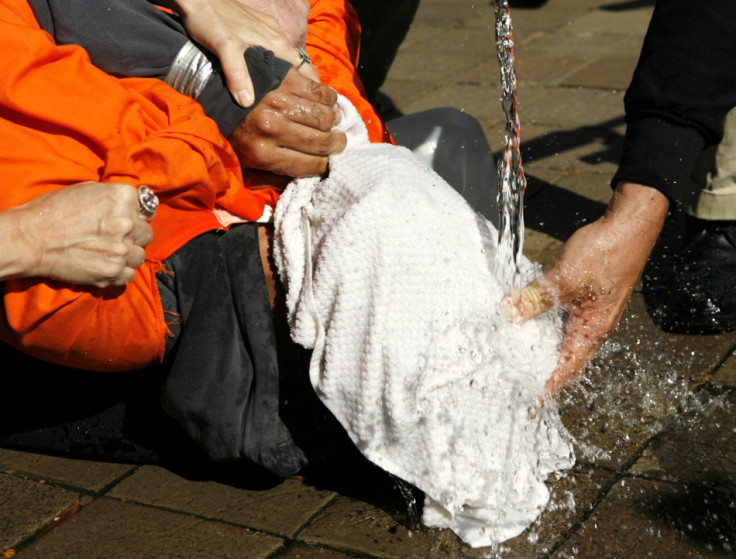CIA medical staff provided torture guidelines for post 9/11 prisoners document reveals

The CIA's medical staff provided guidelines on how to torture post 9/11 prisoners with food and sleep deprivation, waterboarding and even stuffing them into "confinement boxes," a shocking declassified report reveals.
The 2004 document — The Office of Medical Staff Guidelines on Medical and Psychological Support for Detainee Rendition, Interrogation and Detention — coldly presents instructions for chilling treatment of the prisoners. The information addresses confining prisoners in "boxes" barely large enough for their body for hours, even though the report admits such torture isn't particularly effective in obtaining any valuable information.
"These have not proved particularly effective, as they may become a safe haven offering a respite from interrogation," the document states.
Some boxes were "small cubes allowing little more than a cross-legged sitting position," according to the document.
Agency torturers were permitted to place detainees into 'boxes' for up to two hours, assuming "no significant medical conditions (cardiovascular, musculoskeletal)" were present. Prisoners could be trapped in longer boxes, "rectangular and just over the detainee's height, not much wider than his body, and comparatively shallow," for "eight consecutive hours, up to a total of 18 hours a day." The Geneva Conventions bar "close confinement" for prisoners of war
If a detainee stopped eating at one of the agency's notorious secret black site prisons abroad, the Office of Medical Staff recommended forcibly feeding the prisoner rectally. It's a procedure that human-rights advocates have equated with sexual assault.
Other instructions involved prolonged physical stress positions, severe dietary restrictions and waterboarding.
The CIA could inflict "stressful" positions by shackling someone's arms "above the head for roughly two hours without great concern," the guidelines noted. Keeping a prisoner in such a position for between two and four hours would "merit caution, and subject should be monitored for excessive distress," the document urges.
The CIA has struggled mightily to hide its treatment of prisoners at black sites. But current CIA Director John Brennan recently said the agency would never again waterboard prisoners, even if ordered to do so by a future president.
Republican presidential candidate Donald Trump has promised that if elected, he would reintroduce waterboarding, and a "hell of a lot worse" to interrogate suspected terrorists.
The "guidelines" are a surprising document from an American government agency. But they also underscore a breach of professional ethics by medical personnel who take an oath to do no harm.
"The guidelines are an affront to my profession, the medical and mental-health professions, and health professionals should know better and be ashamed of defending a document like this," Vincent lacopino, the medical director of Physicians for Human Rights, told the Guardian.
© Copyright IBTimes 2025. All rights reserved.






















